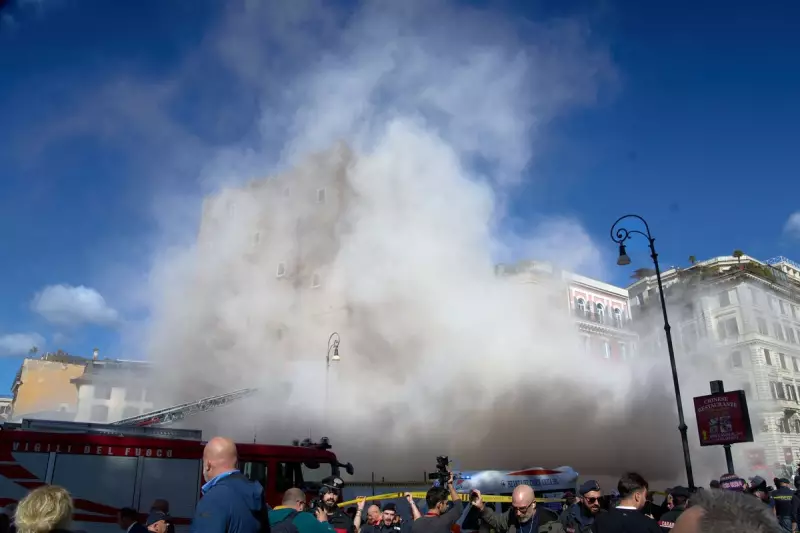
The heart of ancient Rome was struck by tragedy this week when a centuries-old medieval tower unexpectedly crumbled to dust, sending shockwaves through both the archaeological community and international diplomatic circles.
A Monument Lost to Time
Located mere steps from the legendary Roman Forum, the 12th-century structure had stood as a silent witness to nearly nine centuries of history before its sudden demise. The tower, which formed part of Rome's rich tapestry of medieval architecture nestled among classical ruins, collapsed without warning, leaving archaeologists and preservation experts scrambling to understand what went wrong.
Moscow's Controversial Intervention
In a surprising diplomatic manoeuvre, Russian Foreign Ministry spokeswoman Maria Zakharova seized upon the incident to launch a pointed critique of Western nations. "The neglect of this historical treasure demonstrates a troubling pattern," Zakharova declared, suggesting the collapse revealed deeper issues within Western approaches to cultural preservation.
Her comments, made through official channels, have ignited a firestorm of controversy, with many experts questioning the appropriateness of politicising an archaeological tragedy.
Rome's Architectural Vulnerability
The incident has cast a harsh spotlight on the ongoing challenges facing Italy's immense cultural heritage:
- Aging Infrastructure: Many of Rome's ancient structures suffer from centuries of wear and environmental damage
- Funding Challenges: Conservation efforts often struggle with limited resources despite Italy's rich archaeological legacy
- Modern Pressures: Urban development and tourism create additional stresses on historical sites
International Reactions and Implications
Cultural heritage experts have expressed concern that the tower's collapse and subsequent political commentary could signal a new front in diplomatic tensions. "When historical preservation becomes political ammunition, we all lose," noted one prominent archaeologist who wished to remain anonymous.
The timing of the Russian comments, coming amid existing geopolitical strains, suggests that even ancient ruins aren't immune to contemporary political battles. Italian authorities have yet to respond formally to Moscow's statements, focusing instead on securing the collapse site and assessing the damage.
As investigations continue into what caused the medieval structure to fail after standing for nearly 800 years, the international community watches closely, understanding that in today's world, even fallen stones can create significant ripples.





